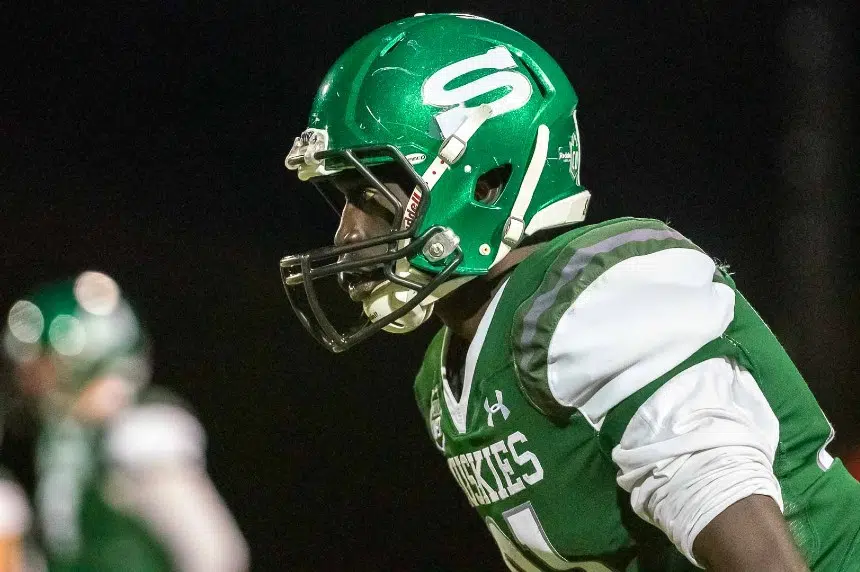“He is somebody I’ll love forever.”
Those were the words of University of Saskatchewan Huskies receiver Yol Piok, speaking about the friend who rushed him to the hospital after he attempted to take his own life.
“I remember the moment that I told him that I’m attempting suicide at this moment. I remember he was ripping across the city I don’t even know how fast and he was trying to get to me,” said Piok, a product of Regina.
He says his friend David is 6-foot-5 and 265 pounds, an offensive lineman and one of the strongest people Piok knows.
“I was kind of passed out at this point and I feel someone just lift me like a pillow and of course it’s David. The next thing you know, I’m waking up in the hospital and I was groggy, but seeing him and knowing at that point I was never alone is something that was just the most special moment at a crazy time,” Piok said.
That moment was a long time coming for Piok after he had been experiencing anxiety that began subtly and slowly got worse and worse as time went on.
“Anxiety is something we all recognize. There are different levels of it within your life (and there are) certain things that trigger it,” said Piok. “For me, sports was one of those things that was an escape from anxiety, but then I started seeing it kind of building in that and as soon as I started to realize that, it was too late.”
In May, former U of S Huskies football player Samwel Uko died after jumping into Wascana Lake in Regina. His family says he begged for help at a hospital hours before taking his own life.
Piok says for athletes, sometimes the pressure comes from within to just power through problems and not address them. He says that’s a mistake.
“You just wake up and this tough thing, you just mentally push through, push through and that’s really how you’re taught,” he said. “Just grind through whatever it is because you can through it.
“But then I realized that mental health is something that you can’t grind through because the grinding part is how you get to that tiredness and depressive state. ”
Piok says it’s OK to not be OK, and to admit it.
“To understand that vulnerability is strength, and by taking that step you’re going to make a huge change not only in your life but also in your relationship with whoever you speak with,” he said.
Piok says the key is talking about your problems and how you feel, and to find a support group that is there for you.
“As you go along, you feel that strength (and) you go, ‘OK, this isn’t a weakness or me telling them my problems, this is me figuring out how to become the best version of myself,’ ” Piok said.
“It has made me the person I am today and it has created relationships that go deeper than I ever thought could be. That’s honestly the biggest thing that I will take away from this, is getting the right group of people seeing they know how you truly feel and just making honest connections with them.”
Piok says his entire football team is very supportive, and all the teammates support each other.
“We’ve all seen that if we want to get better, we all have to talk about our problems because if you never talk about your problems, then how do you expect to get better with them?” Piok said.
“I felt just a completely different connection with everyone on the team, and you just see it now with the Huskies because everybody now talks. We all talk to somebody.”
Piok says it has helped the team make a real connection and become stronger, not just during football but also after sports.











